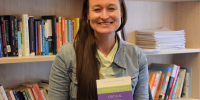
Pacific reflections on aid, development and change
The rapid and extensive changes in the physical, economic and cultural lives of Pacific Island peoples together with the loss of traditional lands to expatriate developers and climate change are discussed in detail in the new issue of the Development Bulletin.
The 80th issue of the Crawford School journal includes reflections, memories, anecdotes, experiences, and the hopes and despair of those who have lived and/or worked extensively in the Pacific.
“This special collection of lived Pacific experiences perhaps tells us more about aid, development and change than many purely academic papers or the many evaluations, data sets and reviews of aid-related projects,” managing editor of the Development Bulletin, Dr Pamela Thomas says.
“These papers outline some important advances in Pacific peoples’ wellbeing but also reflect a widespread deterioration in their environments, economies and the cultural and traditional beliefs that bound families and communities together.
“Those authors who lived through independence in Papua New Guinea, Vanuatu and the Solomon Islands speak of the optimism, skills, and the strong interest in community development at the time, but also of the difficulties created by the countries’ geographies, numerous languages and cultural groups. None were prepared for what happened and all express sadness and disappointment at the growing divisions between the wealthy and the poor, the increase in poverty, urbanisation and loss of land and what Eric Waddell and John Connell identify as the rise of corporate power at the cost of the state.”
Rodney Cole writes of establishing the Papua New Guinea Development Bank just after independence and the support and training for Papua New Guineans to go into small businesses including the establishment of a small enterprise making plastic thongs, Woakabaut Footwear, which included a special model for Highland customers called the Chimbu – short and wide!
Elizabeth Cox had a very different PNG experience. Alone, she sailed up the Sepik River in 1973 as a twenty year old women.
“I was travelling on my own and felt more welcome, safer and happier with my local hosts than with the company of men and women in the many blatantly racist colonial communities,” she writes, adding that after 40 years living and working in PNG and still calls the Sepik ‘home’.
Although it is widely thought that Australian aid to the Pacific has declined over the last five years, Matthew Dornan, Sachini Muller and Terence Wood use a range of new data to show that Australia is the largest provider of foreign aid to the Pacific and note that “the region receives among the highest levels of aid per capita in the world”. Although aid flows to the Pacific have remained stable, its distribution has not, with less going to PNG, more going to the Solomon Islands, Kiribati, Nauru and Tuvalu.
The journal includes a number of comments about increasing Chinese involvement in the Pacific, in particular Chinese aid and loans. As Denghua Zhang notes “Foreign aid is a significant tool of China’s diplomacy in the Pacific and the rapid growth of Chinese aid is clear evidence of China’s rise in the region.”
Gender issues are an important inclusion in this issue. Penelope Schoeffel, a student at UPNG, was involved in women’s liberation discussions but found that efforts to attract PNG students were a complete failure.
“Efforts to develop Pacific-wide gender projects,” she writes, “will invariably fail as there is very wide diversity between cultures in the roles and rights of men and women – a situation many consultants are unaware of.” She writes of the situation in Samoa, where women refer to the Bible and its requirement for wives to obey their husbands whenever gender equality is discussed.
“One of the overlooked issues that will impact on Pacific Island futures is population growth – it will impact on economies, health, environments, land use and sustainability,” said Pamela Thomas.
“As Christine McMurray writes, ‘in the late 1960’s the total population in the Pacific Island Countries was around four million, 50 years later it is more than 10 million and is likely to double in 35 years. Abbott and Pollard point out that integration into the global economy will also have economic impacts as most countries are now open to external shocks that could lead to increased hardship and poverty.”
For the first time, the Development Bulletin includes a poem. Michelle Nayahamui Rooney writes of urbanisation and the concreting over of land and the impact this has on Melanesian lives. She speaks of ancient ties to the land and its boundaries and living an urban life.
The Development Bulletin is the journal of the Development Studies Network which was an initiative of Professor Helen Hughes at what was the National Centre for Development Studies. For the last 32 years, Pamela Thomas has been the journal’s managing editor. The multidisciplinary journal has dealt with emerging development issues drawing on the expertise of academics, non government and government organisations, workers in the field and consultants to provide a full range of perspectives and experiences of development as a field of study.
The Development Bulletin is available for free download here.
Updated: 18 July 2024/Responsible Officer: Crawford Engagement/Page Contact: CAP Web Team












